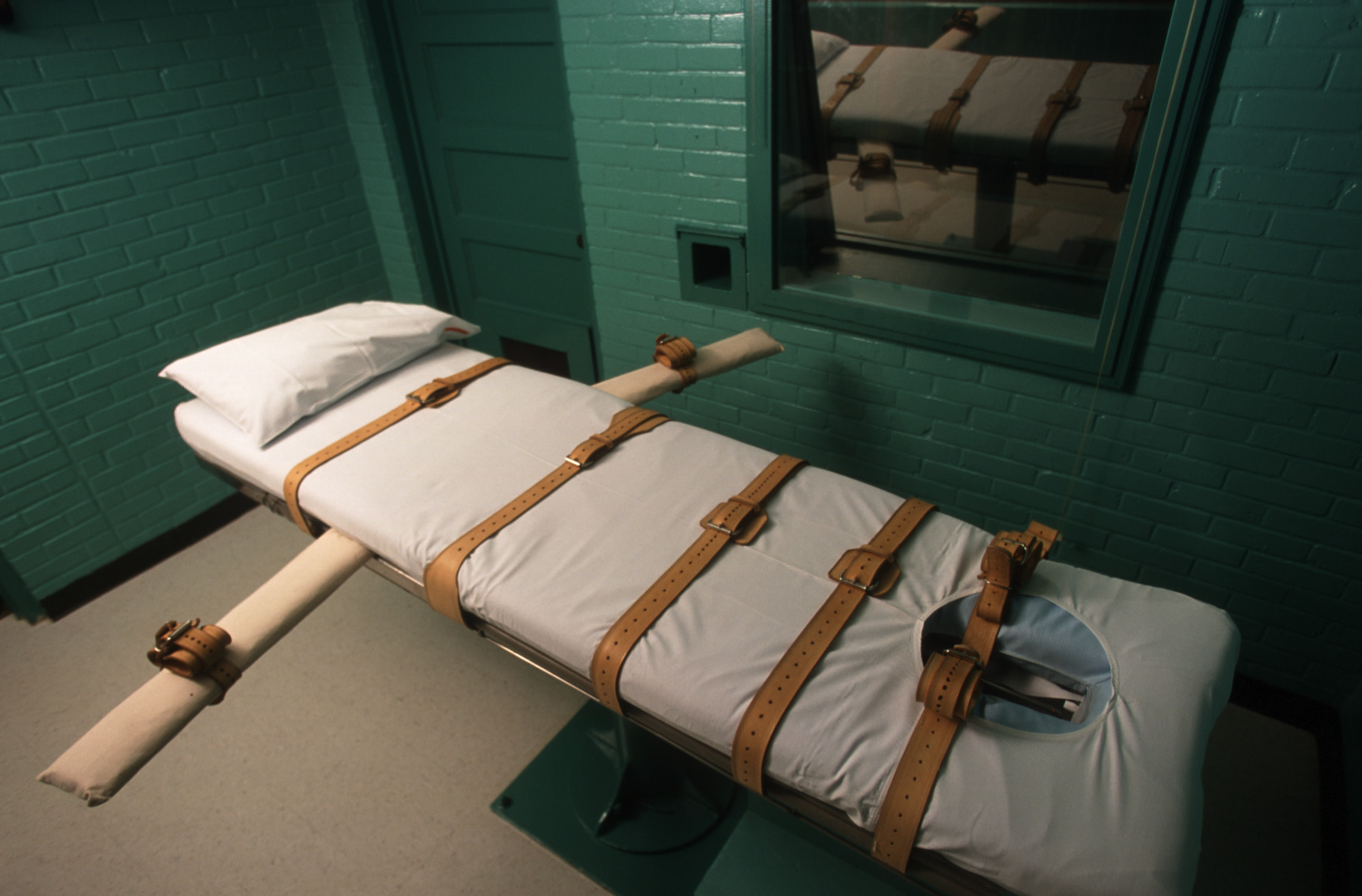A federal appeals court on Monday upheld a ruling delaying the scheduled execution of a Texas inmate, but one dissenting judge rebelled against the ruling by publishing a fake majority opinion.
Jedidiah Murphy, 48, had been set to receive a lethal injection at the state penitentiary in Huntsville on Tuesday evening. He was condemned for the 2000 fatal shooting of 80-year-old Bertie Lee Cunningham during a carjacking in Garland, a suburb of Dallas.
Last week, a federal judge in Austin issued an order staying Murphy’s execution after the inmate’s lawyers filed a lawsuit seeking DNA testing of evidence related to his 2001 trial.
The 5th U.S. Circuit Court of Appeals upheld that order in a 2-1 vote on Monday.
In the ruling, the three-judge panel noted that there was a pending case before the court brought by a different Texas death row inmate that raises similar issues.
“We agree with the district court that a stay is appropriate at least until a decision in that case,” Judge Leslie Southwick wrote for the court’s majority.
However, Judge Jerry E. Smith, the sole vote against allowing the stay to remain in place, then published what he called “the Fifth Circuit panel opinion that should have been issued” as an attachment to his dissent.
The majority opinion is “grave error,” Smith wrote in his dissent. “It succumbs to a vapid last-minute attempt to stay an execution that should have occurred decades ago.
“In the interest of time, instead of penning a long dissent pointing to the panel majority’s and district court’s myriad mistakes, I attach the Fifth Circuit panel opinion that should have been issued.”
Smith concluded the opinion that the court did not actually make by writing that the district court had “abused its discretion in granting Murphy’s September motion to stay execution. Accordingly, we VACATE the stay of execution.”
“I suspect that he thought he was writing the majority opinion and was surprised when neither of the other two judges on the panel voted to lift the stay,” Robert Dunham, the director of the Death Penalty Policy Project and an adjunct professor at the Temple University Beasley School of Law, told Newsweek.
“I would take Judge Smith at his word when he said that he was attaching that opinion ‘in the interest of time,’ and would let others judge whether publishing an opinion that invokes an alternate reality is appropriate or inappropriate judicial conduct.
“However, I would say that the vitriolic language in Judge Smith’s dissent and in his non-majority alternate opinion reflects the increasingly transparent extremism of segments of the federal bench and the Fifth Circuit in particular.”
Journalist Chris Geidner criticized Smith’s behavior, noting in his Law Dork newsletter that there’s nothing within the attachment suggesting that the opinion is fake and not law.
“Instead, Smith put out into the world what amounts to little more than his fan-fic majority opinion,” Geidner wrote. “This is not appropriate judicial behavior, and it’s honestly very confusing. There’s now a document out there, formatted like an opinion of the Fifth Circuit, that is undoubtedly going to be incorrectly cited to and quoted from in the future.”
Geidner added that Smith including the names of the other judges in the attachment is “arguably unprofessional.”
What’s worse, he wrote, is that it occurred in a death penalty case. “Smith inserting unnecessary confusion into the already tense, complex process surrounding executions is truly abhorrent behavior,” Geidner wrote.
The Texas Attorney General’s Office had sought to overturn the stay order. Newsweek has contacted the office for comment.
According to The Associated Press, Murphy’s attorneys have argued that evidence of two robberies and a kidnapping used by prosecutors to convince jurors who had already convicted Murphy of capital murder that he would be a future danger—a finding needed to impose a death sentence—was riddled with issues.
Murphy has admitted his guilt in Cunningham’s death, and expressed remorse, but has denied he committed the other crimes. His attorneys believe DNA testing would help show he did not commit the robberies and kidnapping.
Texas prosecutors oppose the DNA testing, arguing that state law only allows for post-conviction testing of evidence related to guilt or innocence and not to a defendant’s sentence.
If Murphy’s execution went ahead on Tuesday, he would have been the sixth inmate put to death in Texas this year. It would have coincided with World Day Against the Death Penalty, an annual day of advocacy by death penalty opponents.
Death penalty opponents have been advocating for Murphy, citing a long history of mental illness and abuse he suffered as a child while he was in and out of foster care.
Murphy’s case “highlights how easy it is for troubled and mentally ill youth to fall through the cracks of our foster care system,” Abe Bonowitz, the executive director of Death Penalty Action said in a statement provided to Newsweek.
“The common thread among most prisoners facing execution in the United States is the abuse, neglect and addiction they have suffered in their youth. We hope this can be another wake-up call to policy makers that we must improve the social safety nets that could have prevented this murder from happening in the first place.”
Update 10/10/23, 10:10 a.m. ET: This article has been updated to add comment from Robert Dunham.

